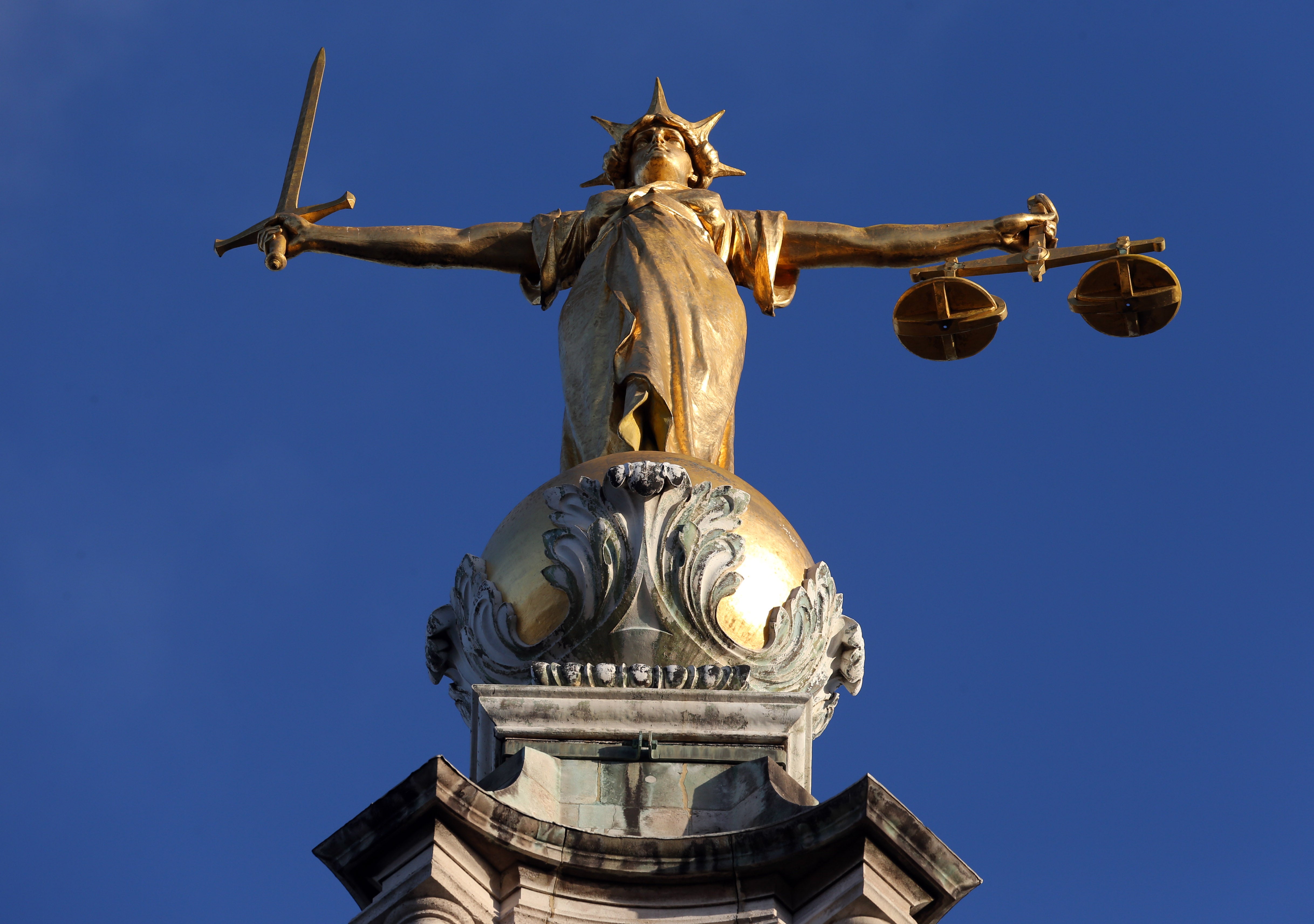Raft of major justice reforms come into force
Prime Minister Boris Johnson says the Government wants to ‘make our streets safer’ as the Police, Crime, Sentencing and Courts Act comes into force.

Your support helps us to tell the story
From reproductive rights to climate change to Big Tech, The Independent is on the ground when the story is developing. Whether it's investigating the financials of Elon Musk's pro-Trump PAC or producing our latest documentary, 'The A Word', which shines a light on the American women fighting for reproductive rights, we know how important it is to parse out the facts from the messaging.
At such a critical moment in US history, we need reporters on the ground. Your donation allows us to keep sending journalists to speak to both sides of the story.
The Independent is trusted by Americans across the entire political spectrum. And unlike many other quality news outlets, we choose not to lock Americans out of our reporting and analysis with paywalls. We believe quality journalism should be available to everyone, paid for by those who can afford it.
Your support makes all the difference.Changes in the law aimed at keeping serious sexual and violent offenders behind bars for longer and making the streets safer come into force on Tuesday.
Making whole-life orders, the most severe punishment available in the UK criminal justice system, the starting point for pre-meditated child murder is among the new measures in the Police, Crime, Sentencing and Courts Act.
Introducing mandatory life sentences for the unlawful killing of emergency workers in the line of duty and ending the automatic early release of offenders deemed to be a danger to the public are also part of the act.
Prime Minister Boris Johnson says the reforms come as the Government aims to “make our streets safer”.
Domestic abuse victims are to get more time to report common assault or battery crimes to police.
A new breastfeeding voyeurism offence could see anyone who takes photographs or video recordings of nursing mothers without their consent facing up to two years in prison.
There is also an aim that the most violent and sexual offenders, including rapists, will also be forced to spend longer in prison.
Mr Johnson said: “We have changed the law so that dangerous criminals are given the sentences they deserve and kept behind bars, and we are backing the police with the powers they need to keep us safe.
“We are well on our way to getting 20,000 more police officers, and we will continue to support victims seeking justice and bear down on crime so that everyone, in every town, village and city, has the security and confidence they deserve.”
Under the act, the punishment for anyone who assaults emergency workers, such as police, prison officers, fire service personnel or frontline health workers, has been doubled to a maximum sentence of two years.
Harper’s Law which sees a mandatory life sentences for anyone convicted of killing an emergency worker while committing a crime has also been brought onto the statute book.
It comes after a campaign for a change in the law by Lissie Harper, the widow of Pc Andrew Harper, 28.
He died from his injuries when he was caught in a strap attached to the back of a getaway car and dragged down a winding country road as his teenage killers fled the scene of a quad bike theft in Sulhamstead, Berkshire, in August 2019.
Henry Long, 19, was sentenced to 16 years and 18-year-olds Jessie Cole and Albert Bowers were handed 13 years in custody over the manslaughter of the Thames Valley Police traffic officer.
All three were cleared of murder by a jury.
Higher maximum penalties for a range of child cruelty offences are also part of the sentencing reforms which come into force on Tuesday.
The changes include the potential of life imprisonment for those who cause or allow the death of a child or vulnerable adult in their household.
Judges will now be able to hand down life sentences to dangerous drivers who kill, the Ministry of Justice (MoJ) states.
The maximum penalty for causing death by dangerous driving and causing death by careless driving when under the influence of drink or drugs has been increased to a life sentence and a new offence of causing serious injury by careless driving has been created.
Judges can impose whole life orders on 18-20-year-olds who commit the worst offences such as acts of terrorism which cause mass loss of life.
The reforms also relate to child murderers and include the introduction of new starting points for deciding the minimum amount of time in custody based on age and seriousness of offence.
There will also be fewer opportunities for over 18 year-olds who committed murder as a child to have their minimum term reviewed.
An offence of intentionally or recklessly causing public nuisance is now available in an effort to crack down on disruptive “guerrilla protests”.
These are the sort of tactics which have been used by climate change protesters who have taken their campaigns to the streets.
The MoJ says the police will also be supported with new powers to tackle non-violent protests that have a significant disruptive effect on the public or on access to Parliament.
Profoundly deaf people who need a BSL (British Sign Language) interpreter are to be able to sit on juries.
Current laws ban which ban the presence of a “stranger” being in the jury deliberation room will be scrapped to enable a BSL interpreter into the room.
Home Secretary Priti Patel said: “We are delivering on the people’s priorities.
“Whether it’s tackling knife crime, violence against women and girls or anti-social guerrilla protest tactics, these measures are all about backing the police and standing up for the law-abiding majority of the British public.”